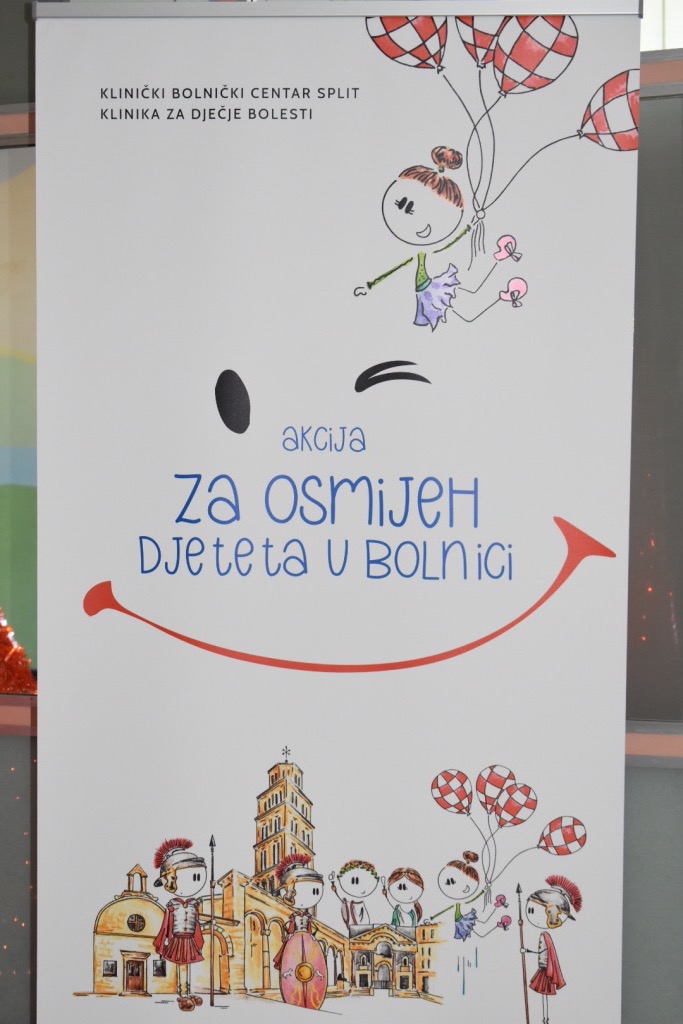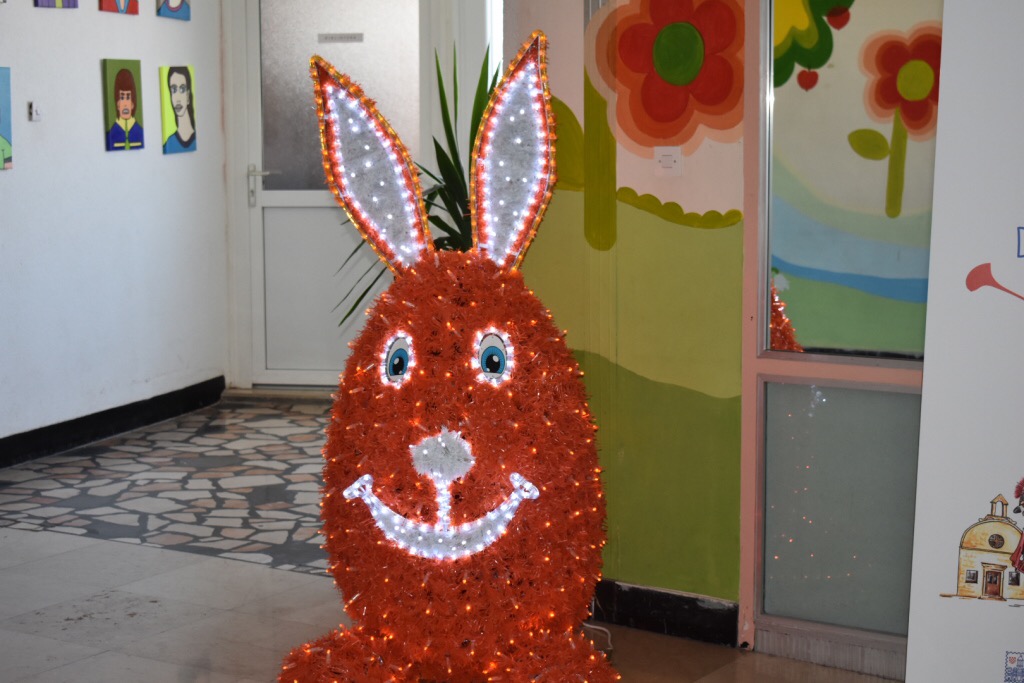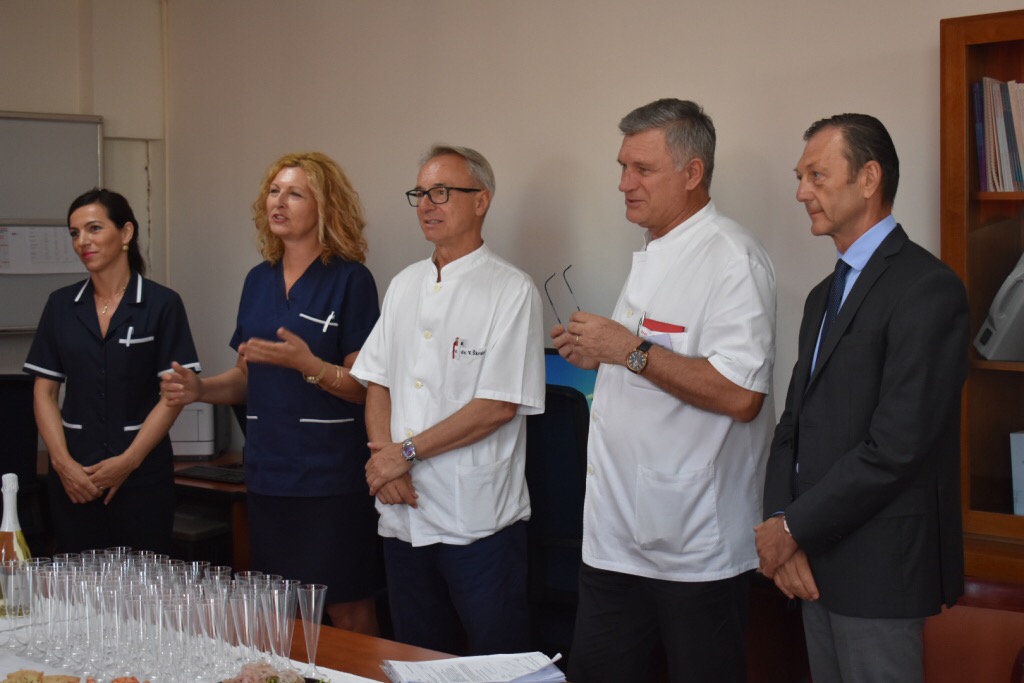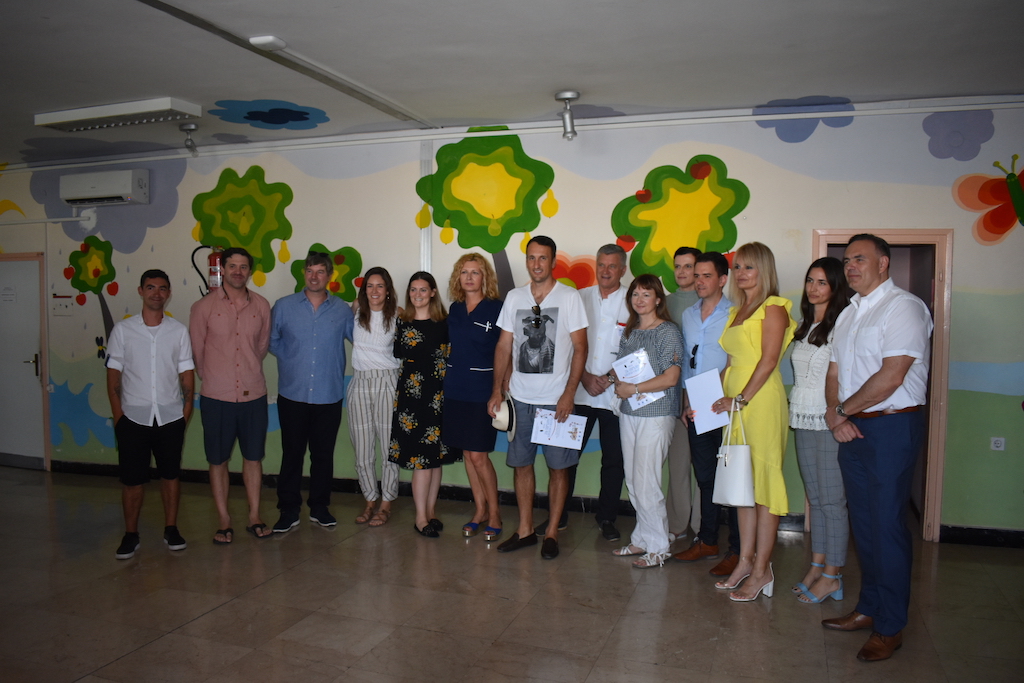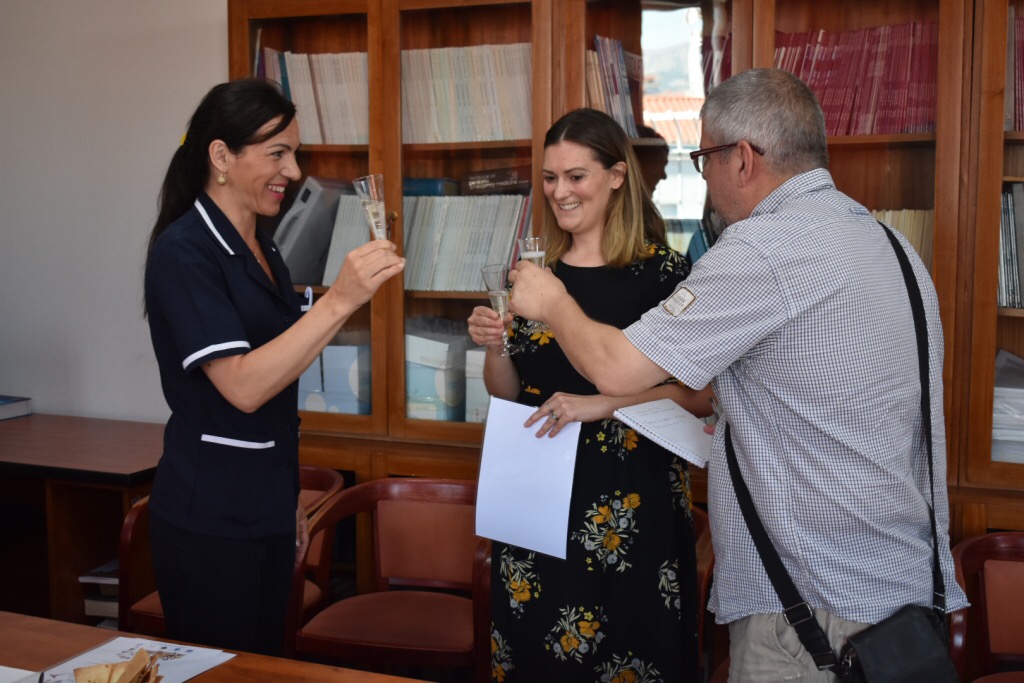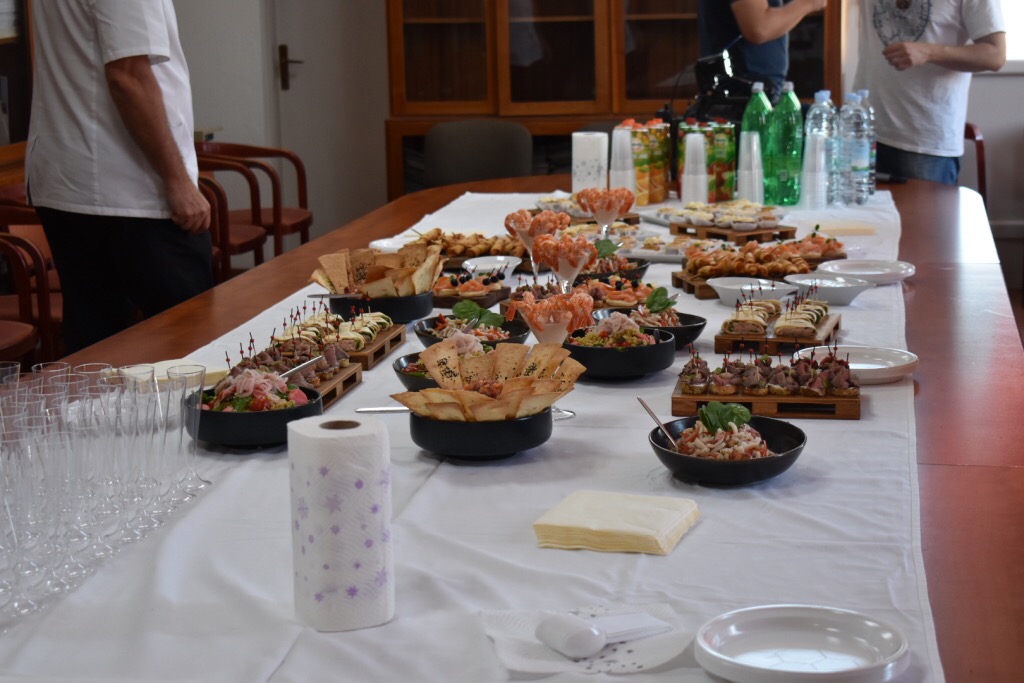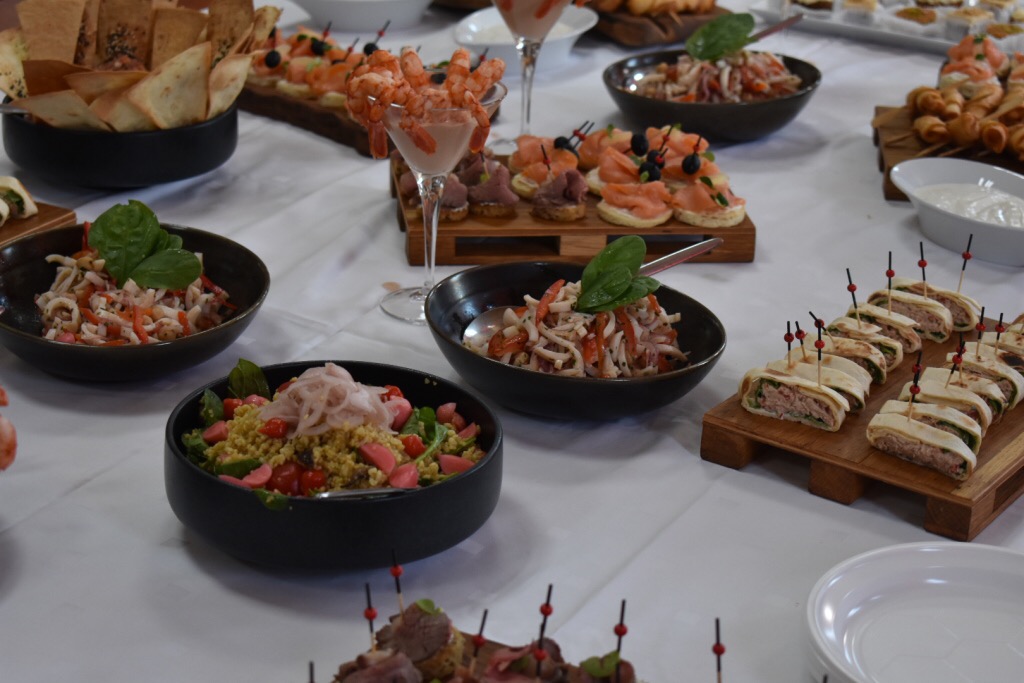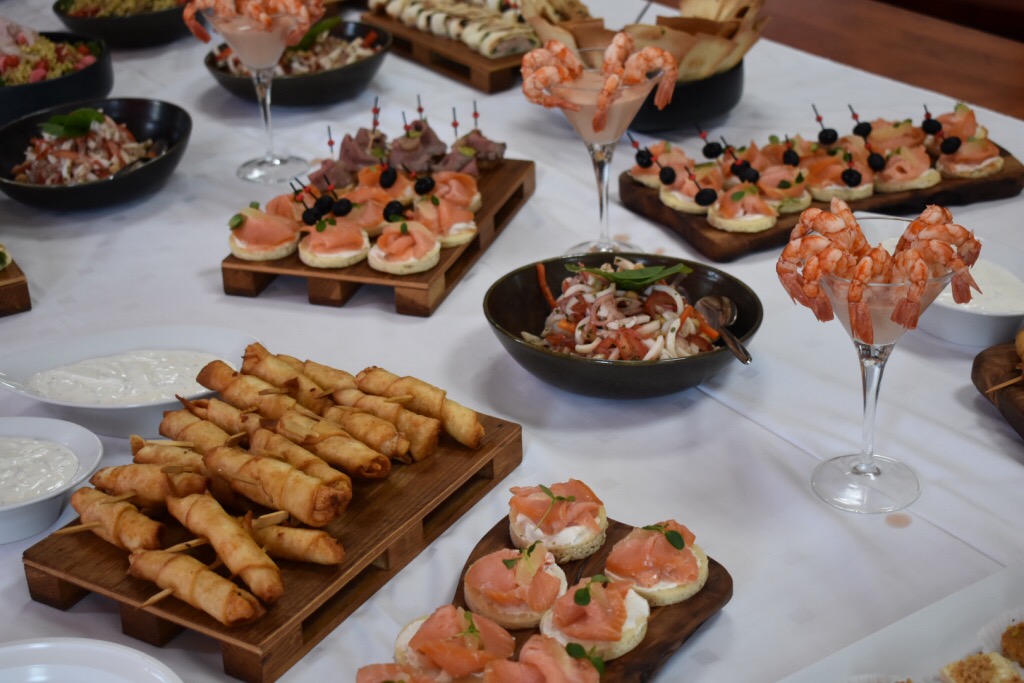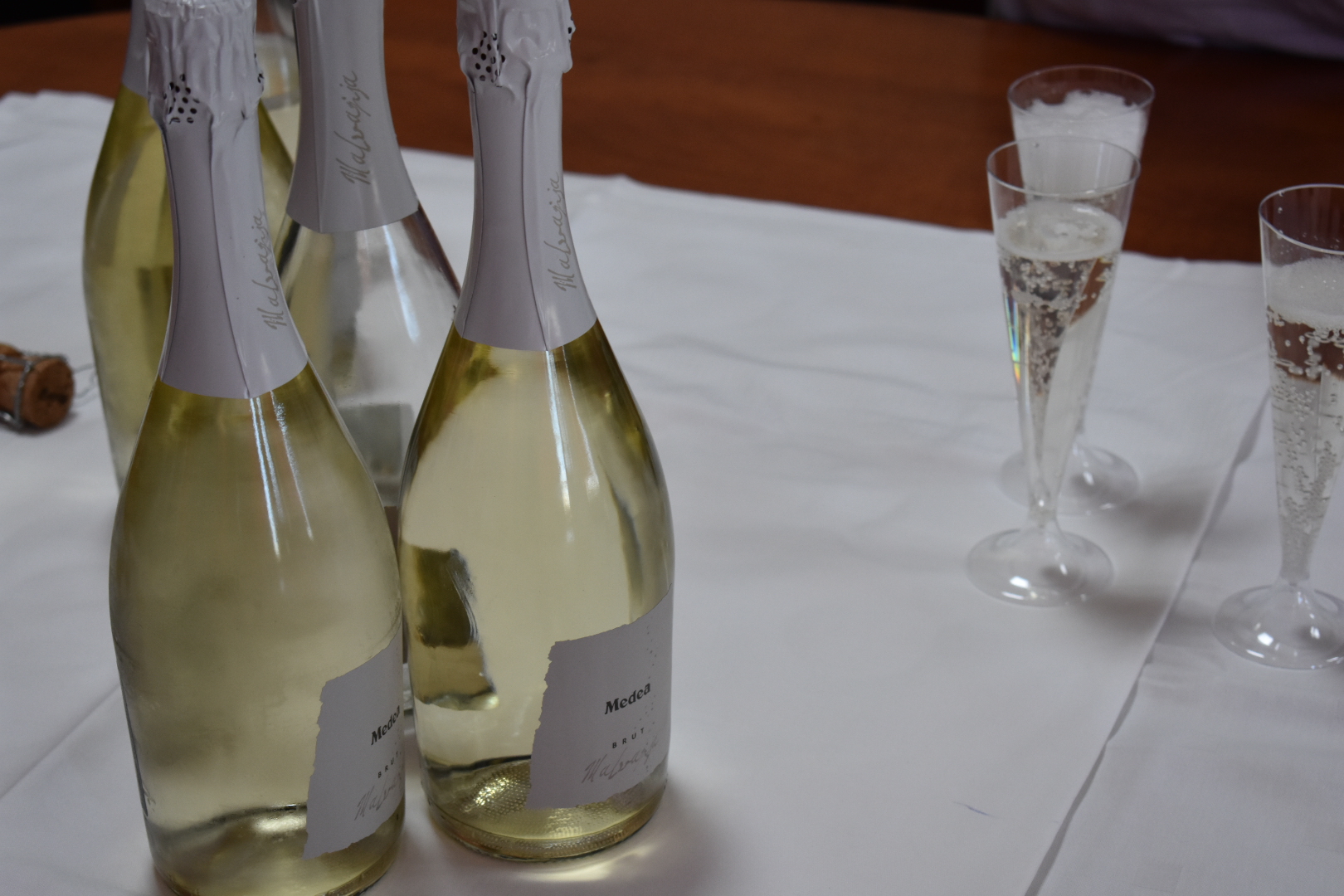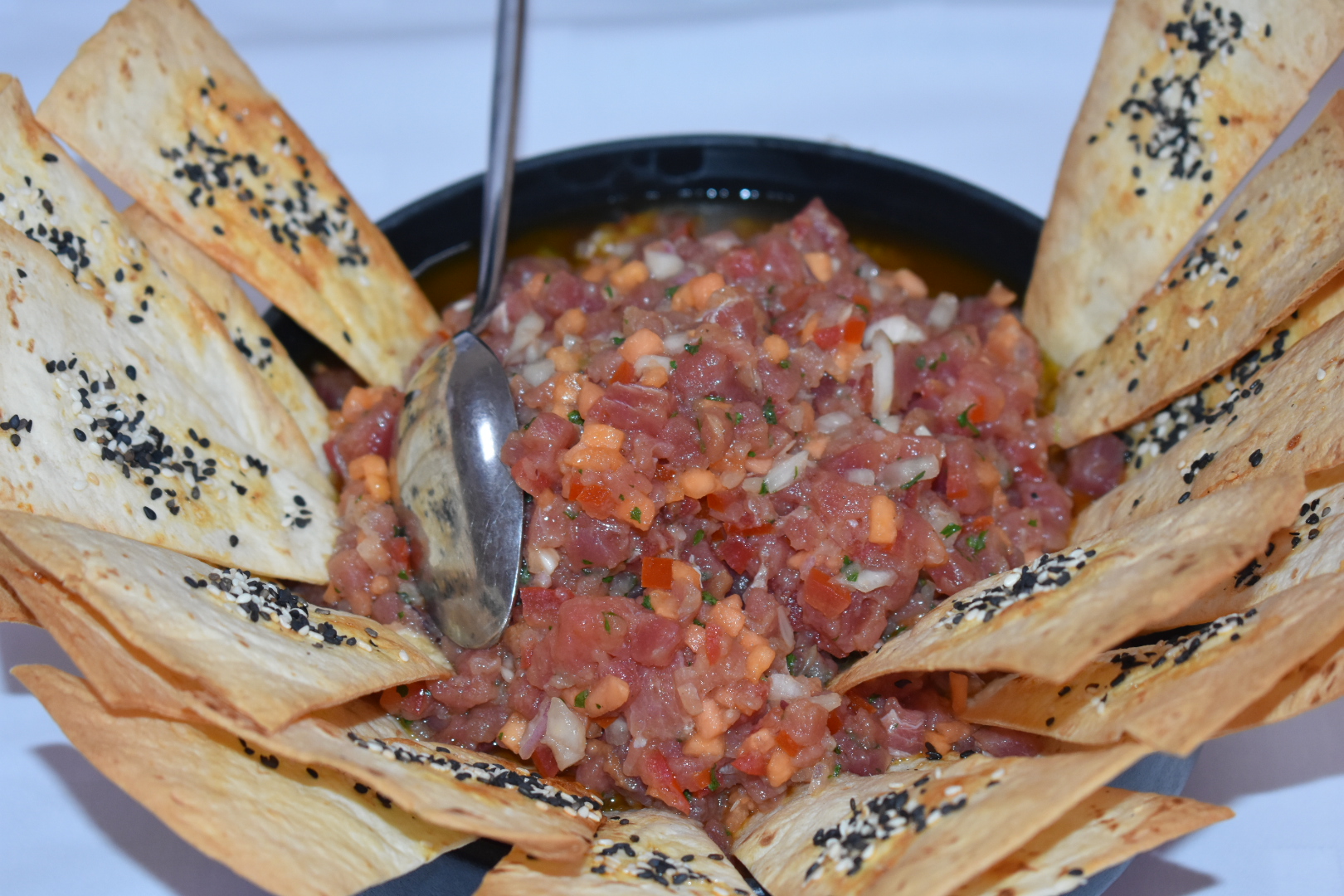Nearly 30% of KBC Split Employees Vaccinated: "An Outstanding Response!"
January 20, 2021 - Nearly 30% of KBC Split employees have received the COVID-19 vaccine, which is an outstanding response.
Dalmatinski Portal reports that Dr. Ante Punda, President of the Expert Council of KBC Split, presented how many hospital employees were vaccinated against COVID-19.
"We had our regular session today, and I can state with satisfaction that all members have been vaccinated, apart from the ones who recently recovered from Covid. They will be vaccinated in the coming period. I thank the ministry and the media for the promotion. KBC is aware of the responsibility; to think of others, we have to think of ourselves.
Thanks to our epidemiological service that conducts vaccination, the response of employees is high. You have seen that epidemiological measures have yielded results. If we are responsible, we will reach the goal of having fewer cases. In three weeks, we vaccinated 1,082 employees, 435 doctors, and 318 nurses; the rest is support staff, our technicians, and laboratory technicians. Now comes the second phase of vaccination. That's about 28.5 percent. All KBC employees are invited. I think that’s a satisfactory figure for the first three weeks. We made the most of the vaccine. That is a respectable figure. We expect that the number of vaccinated will increase as more vaccine doses arrive," said Dr. Punda.
The director of KBC Split, Julija Meštrović, is delighted with the number of vaccinated employees.
"You know how it was said that interest in vaccination at this hospital was minimal. All the vaccine was used. First, those who work in the Covid center were vaccinated. It can't get any better than this. It was done quickly. The response is the best possible. Everyone we could vaccinate was vaccinated. Motivation is very high. The current situation shows this. I don’t know if some don’t want to get vaccinated. What has been achieved is a truly remarkable result. The situation in Croatia is excellent; we must continue to adhere to ongoing measures. The number of hospitalized is decreasing, and because of that, it is becoming easier to work. We have the opportunity to dedicate ourselves to other patients, which is very good," said Dr. Meštrović.
To read more about COVID-19 in Croatia, follow TCN's dedicated page.
Stari Plac Pancake House Treating KBC Split Staff to Weekly Palačinke
December 8, 2020 - A beautiful humanitarian gesture by Stari Plac pancake house, which will send pancakes to Split Hospital's hardworking infectious diseases department every week.
Stari Plac pancake house launched a humanitarian action on Monday in which they will send pancakes to the infectious diseases department staff of KBC Križine in Split every week. On Monday, the Stari Plac team prepared more than twenty portions of these popular pancakes and delivered them still warm to the KBC staff.
"Today, we were diligent, and we prepared and sent more than 20 portions of our best pancakes to KBC Križine. We will do this every week from today to thank our brave doctors, nurses, and technicians for everything they do for the sick. We invite other catering facilities to do the same. These days, nothing is the same, except love. Love is always the same," Stari Plac wrote on their Facebook page.
"It is a cruel time, and one should think more of others, especially those who are currently sacrificing their time and health for the benefit of others. We can’t do much for our medical staff, but we can make them happy with pancakes. In fact, what is better than a hot pancake in one hard day?" Stari Plac added.
"We invite all restaurants from Split to join us in this gesture and for them to do the same. We need to get something positive out of the hardship that has befallen us and make others happy. There is no hardship that can be stronger than togetherness and love," they said.
The head nurse of the Respiratory Intensive Care Center Split, Mihaela Pfiefer, also spoke about the gesture:
"The Respiratory Intensive Care Center Split, which cares for patients with the SARS CoV-2 virus, is located in 3 locations. The Department of Infectious Diseases, Infectious Diseases for COVID-19 and Respiratory Syndromes at the Firule site, and the Department of Infectious Diseases within the Križine hospital. We are grateful from the bottom of our hearts, and if anyone joins your action, we will refer you to these other two locations. The quantity is not important to us. Thank you once again from the bottom of my heart," said Pfiefer.
To read more about lifestyle in Croatia, follow TCN's dedicated page.
Croatian Footballer Darijo Srna Donated to Croatian Hospitals
December 1, 2020 – Former captain of the Croatia national football team Darijo Srna and the company Enna Fruit organized the delivery of mandarins to six Croatian hospitals.
As 24sata reports, former Croatia football player Darijo Srna (38) donated 15 tons of mandarins to hospitals in Zagreb, Split, and Osijek. In cooperation with the company ENNA Fruit, which organized the delivery of fruit, Srna delighted patients and staff, which was confirmed from the hospital in Split.
In addition to Srna's donation, the company ENNA Fruit also donated two integral disinfection systems that will be used in the hospital in the Zagreb Arena.
"In challenging times, when we are all facing the COVID crisis, it is important, within our capabilities, to be supportive of those who need it most," said Darijo Srna on the occasion of this humanitarian donation, which, as he says, went to the right hands – in KBC Sestre milosrdnice, KBC Dubrava, KBC Rebro, Clinic for Children's Diseases in Zagreb and KBC Split and KBC Osijek.
"Integral disinfection system is an advanced device for measuring body temperature, disinfection of hands, and footwear with the help of a disinfection mat. This device will provide healthcare workers, doctors, and nurses with a safer stay in the hospital and facilitate the daily fight against the SARS-CoV-2 virus, the causative agent of COVID-19 disease," they said from the ENNA Fruit company as reported by Rogotin.hr.
Darijo Srna has long been known for humanitarian actions, such as the one in 2014 when he bought 20 tons of mandarins, paid for transportation, and donated them to children in Donetsk who were affected by the horrors of war.
"I'm not doing this to have someone say to me: 'Well done, Dario.' This is from the heart and soul of all citizens of Donetsk," said Darijo Srna then.
To read more news from Croatia, follow TCN's dedicated page.
Easiest Thing I've Done in Croatia? COVID-19 Testing Experience at KBC Split
October 27, 2020 - How dreading getting tested turned into one of the most painless experiences in Croatia yet. My COVID-19 testing experience at KBC Split.
We've all heard horror stories about COVID testing by now. From waiting in non-socially-distanced crowds for hours to despising the tickling sensation up their nose so much they wouldn't wish it upon their worst enemy - I have heard it all.
To say I wasn't exactly eager to get my first COVID test today is a bit of an understatement. And the fact that I needed it to travel abroad when I haven't left my house in 3 weeks as the cases rose had me even more on edge. However, if I wanted to see my partner for the first time in 7 months in Barcelona on Thursday, I needed that negative test result ASAP.
With plans to leave on Thursday (so long as the airline Gods are on my side), I called my doctor in Split on Monday morning, who referred me to the testing center at KBC Split (Križine) on Tuesday at 10:45 am, exactly 48 hours before I was to leave Split. My first hurdle - crossed - and easily, at that.
But then I began to worry when I saw an article in the local media about lines for testing wrapping around the streets of KBC Split on Monday... (yikes). Dalmacija Danas also shared a photo of the line they witnessed today, just before my appointment, which they claimed was even BIGGER than yesterday (you can have a look HERE).
Why would it be any different for me?
With ripping jugo winds and an 80% chance of rain in the forecast between 10-11 am on Tuesday, conveniently as I was to be waiting in line for testing, I was not looking forward to having a similar experience - and since I was on a strict timeframe, there was no room for error.
Once I mentally prepared for what would likely await me at the testing center, I arrived 15 minutes early, just in case.
I made my way up the slight incline to the testing center at KBC Split at 10:30, and as the makeshift testing center came into view in the corner of my eye, I witnessed the unimaginable - no one. And no line.
Because we in Croatia are too familiar with the fact that nothing is ever this easy, I immediately jumped to the conclusion that my doctor duped me, and the testing center was closed.
But it wasn't.
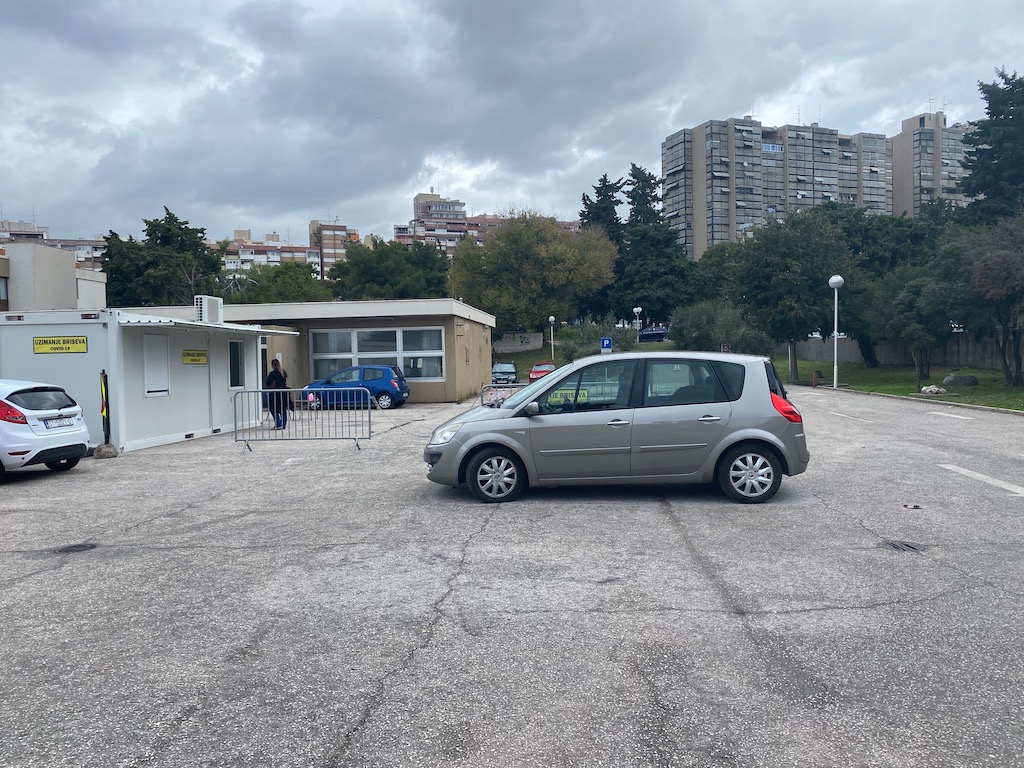
I walked up to the testing window as the only person getting tested at the time was finishing up. Confused, I handed over my health cards to the nurses, who asked if I've had any symptoms. After an oral swab and a nasopharyngeal swab in both nostrils, the nurse asked for my doctor's name and said to call her tomorrow as the results will be done then. And that was it.
The entire process took less than two minutes.
I left stunned and looked around to see if anyone else was waiting, but the testing area remained empty. I was home 10 minutes later.
In a country where bureaucracy is dreaded, and confusion is king, this painless process was a pleasant surprise. Of course, everyone's testing experience is different, but for anyone hoping to skip the line, try going on a Tuesday at 10:30 when the jugo is blowing, and you may get as lucky as I did.
To read more about coronavirus in Croatia, follow TCN's dedicated page.
KBC Split Receives 6 Million Kuna in Cash Donations for Hospital Needs
April 5, 2020 - Over the last few days, Split-based KBC (Clinical Hospital Center) has received cash donations over HRK 6 million since the threat of COVID-19 in Croatia.
“Thanks a lot to everyone. People are donating for hospital needs, that is, for coronavirus purposes. All of them would like to buy ventilators, but since they are not currently available in the global market and are difficult to get, we are investing these donations into what we need to fight the coronavirus. A hospital committee was formed to control the spending of these funds. Various amounts are paid, ranging from small amounts to millions. And thank you to everyone, especially those of our citizens who took from their personal income or pensions,” says Dr. Julije Meštrović, Director of KBC Split for Slobodna Dalmacija.
Prior to this donation, only HRK 2.5 million had been spent for the construction work on Krizine to accommodate the special needs of patients infected with the coronavirus, and it is expected that approximately HRK 3 million will be spent.
However, despite the financial injections of various benefactors since the advent of the coronavirus infection, KBC Split has been closely monitoring developments in the world, and especially in Europe, to enter this war as readily as possible.
Since it was clear that the infection would affect all of Croatia, preparations for treatment began.
“The first and extensive infrastructure investments were made at the Clinic for Infectious Diseases at KBC Split in Krizine, where a new disinfection wing was built at the exit, direct exits to the terrace were opened in the patient rooms, and oxygen supply was installed throughout the hospital and sockets were installed for machine breathing,” notes Dr. Meštrović, who, by the decision of the Ministry of Health, was also named the coordinator for hospital treatment because of the pandemic.
In the next step, the entire Krizine hospital was transformed into a Respiratory-Intensive Center.
“By decision of the Ministry of Health, KBC Split was named one of four such centers for the treatment of COVID-19 in Croatia. KBC Split is the center for four southern counties of the Republic of Croatia. In order to agree and implement a new organization of work, the cooperation of the entire expert council, as well as of all the employees of KBC Split, was necessary. It has succeeded completely and all hospital staff has taken their duties seriously and they are disciplined,” says Dr. Meštrović.
The Križine Respiratory Center is organizationally prepared to receive and treat patients with the coronavirus infection.
“All patients from Krizine were transferred to Firule. Most elective procedures had to be canceled, just like controls. However, we regularly call patients by phone. In this way, they are supervised, they are advised on how to proceed, and in the event of deterioration, they are called for a review. Of course, all acute and oncology treatment services work as usual.”
Hospital staff is divided into teams. Some of the staff are on reserve so that they can fill the needs of the Respiratory Center and change teams at Firule every 7-14 days.
“The organization separated patients with suspected coronavirus infection, as well as those with respiratory tract inflammation from other patients, among whom are particularly sensitive groups of cancer patients and those with immune defects. This division minimizes the possibility of transmitting the infection among patient groups. Patients with suspected coronavirus infection go exclusively to Krizine, and patients with respiratory infections go to separate outpatients at the Pulmonary Disease Clinic and the Clinic for Pediatric Diseases,” Dr. Meštrović.
Initially, the diagnosis of the infection depended solely on testing in Zagreb, but today the testing capacities at KBC Split and the Public Health Institute (Hygienic) are large enough to test patients from the entire Split-Dalmatia County.
“The Krizine hospital is additionally renovated and equipped. Departments for the treatment of particular groups of patients have been designated, and the hospital has conditions for the most complex procedures, which include surgical procedures. The greatest burden of fighting the infection was borne by the staff of the Clinic for Infectious Diseases. However, the number of infected persons is increasing and an increasing number of patients are in other departments of the Respiratory Center. Therefore, all doctors and nurses of KBC Split are participating in the work of the Center, on a special schedule. Among patients, there are those in very serious clinical conditions; these are respiratory patients. There are currently seven in three counties in KBC and these patients are being cared for by anesthetists. The hospital has enough ventilators and other equipment to care for the most severely ill,” emphasizes the director of KBC Split.
KBC Split regularly cooperates with the Civil Protection Headquarters, the Teaching Institute for Public Health and the Health Center.
“The cooperation of county health and other services with KBC has achieved excellent coordination of work and success in reducing the spread of the infection, especially the occurrence of the most severe patients. Such a system could not function without the trust and cooperation of citizens and this cooperation is excellent,” concluded Dr. Julije Meštrović.
Follow TCN's live updates on the coronavirus crisis in Croatia
Young Cosmetics Producer Donates Natural Soap to Split Hospitals
March 30, 2020 - Split entrepreneur and law student Mario Goreta, a 30-year-old who started the field of cosmetics a few years ago, is donating soap to KBC Split and the Institute for Public Health in the fight against the coronavirus.
When we were kids, we were trumpeted by what was known as "hygiene is half of our health." And today, when the coronavirus rules our daily lives, we hear more about the importance of hygiene than we did in kindergarten.
Dalmacija News writes that Split entrepreneur and law student Mario Goreta, a 30-year-old who started in the field of cosmetics a few years ago, has decided to donate soap to KBC Split and the Institute for Public Health in the fight against the coronavirus pandemic.
It all started with the company Spartium, which produces natural cosmetics.
“We started with the production of natural soaps and marketed a line of soaps called 'Fragrances of the Mediterranean'. We have lavender, sage, basil, lemongrass, immortelle, orange and cinnamon, rosemary, lemon, mint, and pine-scented soaps,” Goreta started.
“All our soaps are handmade and each is painted differently. They are very rich in composition, so along with extra virgin Hvar olive oil, coconut and castor oil, our soaps also contain unrefined shea butter,” he said.
Mario's soap production also turned into establishing his own brand of natural cosmetics.
“As the market for natural cosmetics is full of beauty products, as a man in the industry, I decided to launch a line of men's beauty products. After going to the barbershop, the idea of producing natural cosmetics for men was born.
We have created and launched a brand of men's natural cosmetics under the name MEŠTAR! With the advice of barbers all over Dalmatia and Zagreb, we designed natural and professional men's cosmetics,” Goreta said.
After learning about the production and the brand, Goreta spoke about the charity campaign he launched.
“As we manufacture according to the principles of good manufacturing practice, we have disinfectants in our production facility. We listen to the news, read the newspaper, and concluded that there is a great shortage of disinfectants and protective equipment. We do not have protective equipment, but we have the means for personal hygiene and disinfection,” Goreta said.
Given the importance of soap in these moments, the young entrepreneur encouraged donations.
“The ph of natural soaps is around 9, and this is great for destroying bacteria and viruses. We have enough of finished products in the warehouse, but the stores are not working, and it is not a time to make money. Let's help those who help us and who we most need right now. We have decided to donate the natural soaps and disinfectants in our production facility to KBC Split and the Public Health Institute. We do not need to produce at the moment because the stores are closed and all help to the medical staff is welcome,” he explained.
Others helped him realize this project - for free.
“The designer created the design for us for free, Bingo d.o.o. printed free of charge. We were able to get more disinfectants, crafts from Zagreb, TEHNOPROCES sent us extra alcohol for the production of disinfectants for free, all to donate to KBC Split,” Goreta pointed out, and then sent a message to fellow manufacturers.
“In situations like this, every soap and every drop of disinfectant is welcome. We would also like to invite all our fellow manufacturers to join us in donating to hospitals. Soaps, liquid soaps, disinfectants, face masks, protective suits, gloves, everything you have in production facilities, doctors need,” Goreta concluded.
Follow TCN's live updates on the coronavirus crisis in Croatia.
Hajduk and Fan Charity 'Bilo Srce' Launch 'Breathe as One' Campaign for KBC Split
March 29, 2020 - HNK Hajduk Split and fan charity ‘Bilo Srce’ have joined forces to launch the ‘Breathe as One’ campaign for KBC Split.
HNK Hajduk’s statement in full:
“Aware of the moment we are all experiencing, the importance of combating the SARS-CoV-2 coronavirus pandemic and ultimately the impact of the pandemic on the Club's functioning, HNK Hajduk and the Hajduk Fan Charity “Bilo Srce“ are launching the "Breathe as One" campaign to equip the Department of Orthopedics and Traumatology at KBC Split, which serves the care of the most severe coronavirus infected patients.
HNK Hajduk, its first team and club employees have already raised the funds needed to buy two sterilizers, which are currently most necessary to the employees of the Split hospital. The original intention was to raise funds to purchases ventilators, but due to the length of the delivery time, in agreement with the KBC Board, the idea was dropped.
Excess funds from buying the sterilization devices will be donated for the second part of the action, in which we invite all our fans, veterans, sponsors and all the big-hearted people who are able to participate in the fundraising campaign to equip intensive care (beds, monitors, pumps, suctions and all the other equipment necessary to function in these most difficult moments).
We want to help KBC Split and our entire community to ensure that all those who need it receive the highest quality healthcare in the fight against coronavirus SARS-CoV-2.
According to his or her ability, anyone can make personal payments to the account listed below, especially for humanitarian purposes:
USER: HNK HAJDUK Š.D.D.
IBAN: HR9124070001500328067
SWIFT: OTPVHR2X
Model: 00
Call number: 00
Description: Humanitarian action
In advance, we thank everyone for their contribution, solidarity and demonstration of social responsibility, and in the interest of all of us and our loved ones, our fellow citizens and all those who unfortunately will not be able to avoid hospitalization.
Let's breathe as one: Hajduk and Bilo Srce for KBC Split! #ostanidoma”
Follow TCN's live updates on the coronavirus crisis in Croatia.
Tourist Campers Use Split Hospital Parking for Free, But is it Legal?
August 26, 2019 - Foreign camper vans have finally found the best location to ‘camp out’ in Split this summer - and they don’t even have to reach into their wallets.
Interestingly, the location is known and accessible to everyone in Split, and if you live in the city or, hell, even got hit with an injury or illness on your Croatian holiday, chances are, you’ve been here too.
Namely, Slobodna Dalmacija writes that tourist campers have found a home in the southern parking lot of the Clinical Hospital Center in Firule (KBC Split), right in front of the main medical building that houses the Psychiatry Clinic. For countless days and nights, camper vans have found comfort in spending their summer holidays in this popular Split parking lot. There are sometimes five to eight vehicles, most often with Italian and Spanish license plates, though some citizens recall seeing Czech plates, too.
Hospital staff, as well as patients and visitors of the hospital, aren't taking a liking to the campers because parking at KBC Split is already a battle, and always a headache.
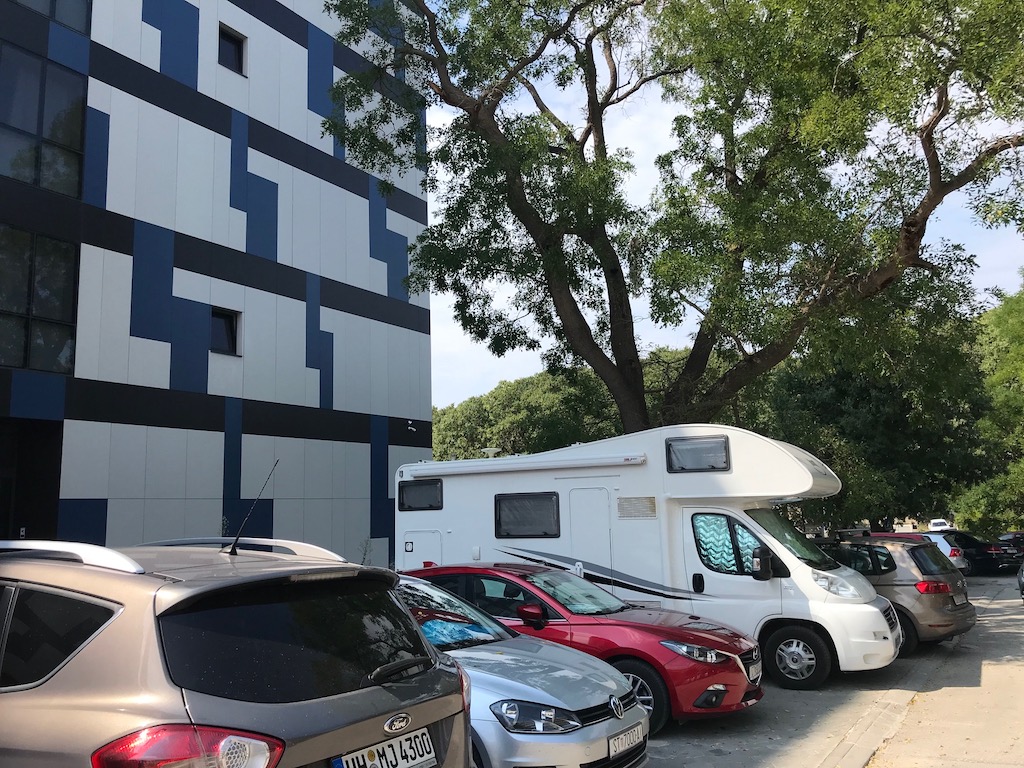
The campers can be found across the hospital parking lot, but you can also find them on the nearby dirt area, along the entire southern side of the KBC Firule complex.
“We know about this problem and we have already reported it to the Communal Police. We, as a hospital, do not have the mechanisms to remove these camper vans. But the problem is that they, as tourists, do not in practice violate the law, but are just parking in a parking lot. The Communal Police Department said they could not do anything to them either, because the campers do not occupy more than one parking space,” says Dr. Anton Marović, Assistant Director of the largest Dalmatian healthcare institution.
There have been cases in recent years where their owners would bring out tables, chairs, and even umbrellas to dine beneath the hospital windows and balconies.
Slobodna Dalmacija also spoke to Damir Ordulj, the head of the City of Split municipal department.
“Legally, we can't do anything to them because they only take up one spot in the parking lot to accommodate the vehicle. In addition, they have not set up tables outside their campers. But we will definitely send a traffic officer right away to see what he can do in this regard,” said Ordulj on Saturday.
KBC Split also said that they still have not been able to reach someone from the Tourist Inspectorate, which is the only one authorized to sanction campers outside the campgrounds. For reference, the closest campsite to Split is in Stobreč.
To read more about travel in Croatia, follow TCN's dedicated page.
Brasserie on 7 and Zinfandel Raise 90,000 Kuna for Wi-Fi at KBC Split Children’s Clinic!
As if we needed another reason to love Split institutions Brasserie on 7 and Zinfandel Food & Wine Bar, today, we’re adding one more to the list.
Thanks to a heartfelt initiative by Maria Mustapić and Korana Bučić, Split’s leading lady restauranteurs and mothers themselves, the Children’s Clinic at the KBC Split Hospital is now fully equipped with free Wi-Fi, as a result of donations from fellow Split entrepreneurs which reached 90,000 kuna.
In an effort to give the children in hospital beds the same opportunities as their healthy peers, Mustapić and Bučić worked tirelessly in the spring, reaching out to local entrepreneurs and businesses around Split for donations to finally bring the children at KBC Split into the modern age.
And the response was overwhelming.
The donors
Namely, nine Split businesses came out to support the cause, including Pjaca hosteli, Centaurus, Pro integris,Bagatin Med, Strateški Consulting BM, Dalmatian Wines (Vinarija Rizman), Alternativna tura, Saint-Gobain građevinski proizvodi Hrvatska, and Smart Net.
Better yet, Split-based IT company Smart Net provided the WiFi and labor free of charge, leaving Mustapić and Bučić only to gather donations for the costs of equipment and cabling. Smart Net’s generosity didn’t end there, either, as they have offered to fund two years of maintenance for the service at the hospital!
All of the donors were acknowledged by the hospital staff and project leaders at a ceremony held at the Children’s Clinic of the hospital on Tuesday.
The donors and guests enjoyed a full spread of culinary treats crafted by none other than Brasserie on 7 and Zinfandel. Because is there any better way to say "thank you"?
Mustapić and Bučić extend their sincere gratitude and appreciation to all of the donors for making this dream a reality.
To read more about lifestyle in Croatia, follow TCN’s dedicated page.
Frustrated and Aggressive: Croatian Psychiatrist ''Diagnoses'' Country
As Slobodna Dalmacija/Ivica Markovic writes on the 24th of March, 2019, in these turbulent and often strange times in which we live, the best illustrators tend to be the ''black chronicles'' plastered across newspapers in the Croatian media.
There isn't a week that goes by in which Croats aren't shocked by some undesirable scene or another from one or more Croatian cities. The Croatian public was, to name just a few such cases, totally shocked by the beating up of a security guard at a nightclub in Požega, which seems to have been an entirely unprovoked attack by three aggressors in masks. The infamous domestic abuse case of Daruvarac beating his eighteen-year-old girlfriend up in Zadar repulsed the public, the father who threw his four children off the balcony of the family home sent shockwaves through Croatian society, and in Trilj, a teenager of just fourteen years of age killed his mother with a knife.
After such events are continually forced in front of our eyes, we can't help but ask the question: What's happening? What causes such levels of primitive aggression in people? To try to shed some light on the situation and find some answers to these questions, Slobodna Dalmacija talked to doc. Dr. Boran Uglešić, a well-known Croatian psychiatrist from the Clinical Center for Psychiatry at KBC Split.
''Behind every type of aggression there is a frustration in the aggressor. We live in a society that is socio-economically deteriorating, in which generally dissatisfied people live, in a society where there aren't adequate rewards for work, where irresponsibility is more appreciated than responsibility. We live in a system of egoism, selfishness, greed, alienation, malice, envy, jealousy...
Therefore, we can also ask, how can an individual function in such a system? Very often, the reasons for these types of unacceptable behavior are sought after in the consumption of alcohol, narcotics, broken interpersonal relationships, or in some psychopathological elements. Seldom are the possibilities for normal function and fitting in with the rest of society seen,'' Dr. Uglešić claims.
''The development of each person needs to be divided into several phases, each of which brings about or invokes the way in which a person will behave in the future. Much of this lies in home education, or certainly the earliest years of life and the child's upbringing, which affects his later behaviour within society.
In our childhood, we had posters of Mickey Mouse, Bruce Lee, Blondie, or some other people in our rooms, and they were our idols that we wanted to be like. Today, children find some other ''idols'' on social networks who propagate aggression, who are bullies, that is to say, people who are living outside of what are socially acceptable norms. Of course, such learned patterns of behaviour and the very people they identify with provoke aggressive behaviour.
We're all usually a copy of our parents and what we have seen in our homes at the earliest of ages is our pattern of behaviour in later life. It's very important that parents of a young man are seen as values of the system and of life. If someone in his house saw aggression in his earliest youth, and this is happens repeatedly, it's possible that he will, in the future, when he's grown up, repeat that pattern of behaviour,'' says Dr. Uglešić.
So, are the Croats a frustrated nation?
''They are, and that goes for the vast majority of Croatian residents. We live in a frustrating society. That is, we live in a capitalist system that everyone wanted so much, but when that capitalism arrived, most of it was disappointing to many. We live in a consumer's society today, in which we all want to do the same thing.
But we can't all be the same. We can't all drive expensive cars. We don't all have the same standards, we can't all buy expensive and sometimes overpriced items. After all, we don't have all the same system of values. That is precisely the essence of capitalism that we as a nation weren't prepared for. Everyone thought that the promises of a better life would be real, that everything would be beautiful, and then it became obvious that it wasn't that way.
And then "group frustration" happened, of course consisting of those who can't afford all that was promised to them, and there are so many more of them than there are of those who can. There was talk of material abundance, great happiness, unrestricted personal liberty, unlimited progress,'' says Dr. Uglešić.
That lack of abundance, of great happiness, and of unlimited progress in many, has caused the frustration that provokes aggression.
"Therefore, in all this, every person must be careful and responsible, given that everything is offered, but that not everyone can have everything, yet they think they can. Then frustration leads to various types of aggression (verbal, physical). What's decent is no longer thought about, all of that leads to egoism, selfishness, greed, jealousy, envy, aggression...
Unfortunately, in today's Croatia, but also in a large part of the world, it's "normal" to behave in such an unacceptable manner and thus attract attention, and we know that such behaviour in people is causing a fake sense of power, size, strength...'' continues Dr. Uglešić.
He claims that the emergence of social networking has greatly increased the level of aggression in society.
The emergence of social networks appeals to people who support aggressive behaviour and who identify themselves with the perpetrator. An the modern day, aggression comes from all sides, it's unpredictable, uncontrollable, and can't be prevented. So, we have a very common occurrence of aggression in traffic, which does come with an ''older date'' to it, but we also have a recent bout of aggression in healthcare institutions where patients are attacking doctors and nurses, which was almost without precedent before.
The types of people don't refrain from anything, they aren't scared of anyone and they think their behaviour is normal and acceptable. Therefore, in the medical sense of the word, they need help to not repeat violent acts,'' says doc. Dr. Boran Uglešić.
''The problem of increasing violence in Croatia is sometimes the punishment that such people receive. They [punishments] certainly do need to be more drastic and heavier, and they should be an example to all those who might consider being violent or aggressive in the future.
In addition to punishments, which certainly shouldn't be minor, such people should get treatment which focuses on controlling impulses and changing their behavioral patterns over a longer period of time. If a violent person has committed a serious criminal offense, let's say attempted murder, and gets a five-year prison sentence, I think their treatment should be carried out for that entire five year period, while they're in prison, and if possible and if those circumstances require it, such treatment would have to continue even after leaving prison,'' Dr. Uglešić concludes.
Make sure to follow our dedicated lifestyle page for more.
Click here for the original article by Ivica Markovic for Slobodna Dalmacija


